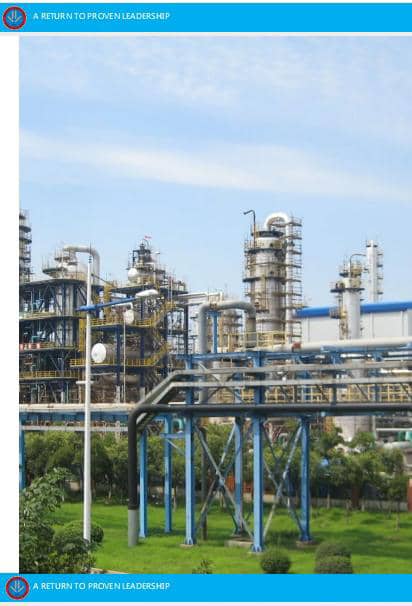By Burnett Munthali
The Democratic Progressive Party (DPP) presents an ambitious vision that seeks to reposition Malawi’s economy through agricultural transformation and industrialisation.
At the heart of this vision is a pledge to reform ADMARC into a fully functional commercial entity with strong market linkages, both locally and internationally.
The manifesto promises to revitalise the Commodity Exchange to ensure that transactions are driven by quality, timely delivery, and reliable payment systems.
Equally important is the guarantee that Malawi’s Strategic Grain Reserves will maintain a minimum of 150,000 metric tonnes of stock at all times, ensuring food security..

The DPP also commits to promoting research and adopting climate-smart agriculture technologies to enhance resilience against the impact of climate change.
Acknowledging challenges in mechanisation, the party recognises that the problem lies not in demand but in supply constraints, and it pledges to create a conducive environment for improved access to machinery and equipment.
Fiscal incentives will be provided for the importation of high-value irrigation equipment, covering land preparation, irrigation, pest control, transportation, harvesting, and post-harvest processing.
At the same time, DPP pledges to facilitate the production of low-cost, small-scale farm machinery through public-private partnerships, ensuring that even smallholder farmers can mechanise.
The manifesto further promises to support the establishment of anchor farms, cooperatives, and village grain banks, thereby strengthening community-based agricultural systems.
To enhance market opportunities, the DPP commits to increasing access to structured and lucrative markets for all priority commodities.
This will include the creation of new structured markets, the reform of commodity exchanges to boost trade volumes and storage capacity, and the promotion of contract farming and other market-driven farming models.
Fish farming will also receive strong attention, with plans to construct ponds and dams in rural areas while ensuring availability of affordable fish feed.
On livestock, the manifesto pledges to promote community participation in breeding programmes, while expanding pass-on schemes for cattle, goats, and chickens among smallholder farmers.
Comprehensive pest and disease control programmes will be strengthened to protect livestock, alongside improved breeding of cattle, goats, sheep, and chickens in government farms.
Technology will also be integrated into livestock production and value addition, and milk processing plants will be established in rural areas to enhance farmer incomes.
The DPP’s vision extends beyond agriculture into industrialisation, which it describes as “life after production.”
The party pledges to build a strong manufacturing sector with forward and backward linkages that will sustain a knowledge-based economy.
The private sector is expected to serve as the engine of growth, generating revenue, foreign exchange, and jobs.
Six key industries will be prioritised: agro-processing, textiles and apparel, mineral processing, pharmaceuticals, renewable energy, and technology.
Each sector will be developed within Special Economic Zones (SEZs) equipped with world-class infrastructure, reliable energy, and streamlined processes.
Agro-processing hubs will transform crops such as soy, wheat, rice, tea, fruits, vegetables, and macadamia into export-ready products.
The textile industry will be revived through cotton-to-garment parks, creating thousands of jobs for young Malawians.
A mineral beneficiation policy will ban the raw export of graphite and rare earth minerals, ensuring Malawi captures full value from its natural resources.
Five SEZs will anchor regional development, with Lilongwe as the agro-processing and tech hub, Blantyre as the textile and advanced manufacturing centre, Mzuzu as a timber and renewable energy hub, Mangochi as a fisheries and eco-tourism hub, and Karonga as a mineral trade and logistics centre.
These zones will provide tax holidays, duty-free machinery imports, and priority land access to investors.
Notably, 30% of SEZ space will be reserved for youth-led enterprises, with rent-free incentives for qualifying startups.
Industrial Skills Academies will also be established in each zone to train young Malawians in technical skills needed for modern industries.
The DPP envisions public-private partnerships to drive SEZ development, with government providing land and infrastructure while investors bring capital and expertise.
Build-Operate-Transfer models will see private firms construct and run key facilities such as power plants, roads, and water systems before handing them over to the state.
Anchor investors will enjoy incentives, but only under strict conditions of local sourcing and youth employment commitments.
Transparency will be guaranteed through an SEZ Transparency Portal, where the public can track investments and progress in real time.
Concluding analysis
The DPP manifesto is bold, comprehensive, and ambitious in scope.
It provides a detailed roadmap for transforming Malawi’s economy through agriculture-led industrialisation and private sector–driven growth.
The emphasis on food security, mechanisation, structured markets, and livestock development shows a deep awareness of Malawi’s rural realities.
Equally, the prioritisation of Special Economic Zones highlights a forward-looking industrial policy that seeks to position Malawi as a competitive player in global markets.
However, the success of this blueprint will hinge on effective implementation, sustained financing, and genuine political will to ensure promises do not remain on paper.
If realised, this manifesto could mark a turning point for Malawi’s journey toward prosperity, jobs, and sustainable growth.



